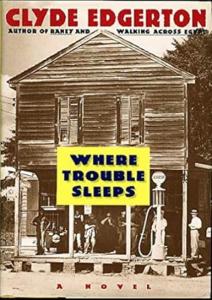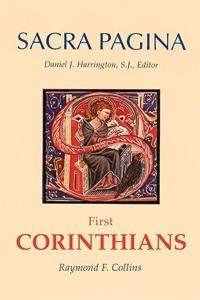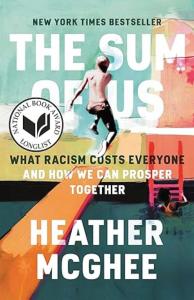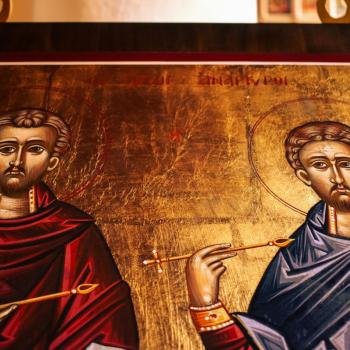“Trouble Trouble Right Here in Church”
I Corinthians 9:16-23

Clyde Edgerton’s novel Where Trouble Sleeps takes place in sleepy Listre, North Carolina. No one ever thought trouble would take up residence in Listre. It is the kind of rustic crossroads where the most exciting event in years was a collision between a mule and a pickup truck. It’s the kind of place where it seems like nothing ever changes – until the fateful day when everything changes at once.
When trouble comes to the church, trouble doesn’t sleep there; trouble thrives there. There’s never been a moment in history when the church has not been in trouble or making trouble. The church was born in hot water. And today the church is a hot burning cauldron of trouble. We are not victims of trouble; we are the catalysts of trouble.

Photo Amazon
And no biblical texts turn the magnifying glass on trouble like the letters of St. Paul. Whether Paul wrote 13 letters or 7, trouble lurks on nearly every page. This is especially true of the Corinthian correspondence. Raymond F. Collins, in his work on I Corinthians demonstrates that Paul was telling the Corinthians what they should do and what they should not do (Raymond F. Collins, First Corinthians, Sacra Pagina: Collegeville, MN: The Liturgical Press).

Photo Amazon
From Paul we learn the church at Corinth was filled with trouble. He could have named his letters, The Chronicles of Corinthian Troubles. Read I and II Corinthians and you will be grateful you have a church that fights over the color of the carpet. There’s trouble in Corinth from the political divisions of chapter 1 to the confusion about what happens in death in chapter 15. And Paul is right in the middle of all this trouble with his sleeves rolled up and his critical thinking skills on full display.
Paul says, “I exhort you in the name of our Lord Jesus Christ that all of you be in agreement and that there be no division among us, but that you be of the same mind and of a same opinion.” Paul insists that unity provides mutual benefit.
We are supposed to be one: One Lord, one baptism, one Spirit, one Church. “We believe one, holy, apostolic catholic church.” But we are Legion – a paranoid, scared, schizophrenic chained one running loose in the secular graveyard cutting ourselves with stones with self-injuries and demonic passions.
Analogy I: Mutual Benefit
I have an analogical connection here that attempts to overcome our stubborn belief that progress for the church can be achieved only at the expense of other Christians.

Amazon Picture
What if we promoted Paul’s sense of mutuality by offering the metaphor of solidarity arguing that division results in the diminishment of everyone. Heather McGee has written The Sum of Us: What Racism Costs Everyone and How We Can Prosper Together as a detailed narrative of racism harming white people as badly as it harms black and brown people. She challenges the zero-sum story that “progress for people of color means a loss for white people. Analogy: The church needs to challenge the notion that progress for women, gays, and minorities hurts Christians, especially white Christians. Division hurts conservatives and liberals. And the church is diminished in the eyes of the world.
Even the folks who just want everyone to get along are troubled now. It seems only yesterday that we were singing “There’s a sweet, sweet Spirit in this place.” Now, “Our name is Legion and our troubles multiply daily.”
Analogy II: The Gospel for the Weak
Here’s another analogy from the teaching of Jesus: the weak and the strong. There is a difference between Paul and today’s evangelicals. Paul says, “For the weak I have become weak.” In a culture of shame and honor, Paul puts on the cloak of shame and identifies with the weak. Today’s evangelicals have donned the robes of pride and shamelessness. Paul “enslaves himself” for the weak. Evangelicals disdain those they find less than acceptable.
Too many Christians have forgotten Paul’s words to the Corinthians: “For God’s foolishness is wiser than human wisdom, and God’s weakness is stronger than human strength.” They consider secular politics more important than salvation. Paul says, “To the weak I became weak, so that I might win the weak. I have become all things to all people, so that I might by any means save some. I do it all for the sake of the gospel, so that I may share in its blessings.” The evangelicals identify with the strong, the mighty, the wealthy, the demagogues of secular politics and they are putting down those they consider weak.
Analogy III: Keep the contract between preacher and congregation
I believe that preachers and church members have broken our contract. And here I have another analogy for you. Think of the study of contract theory. Contract theory is the study of how people and organizations construct and develop legal agreements. It analyzes how parties with conflicting interests build formal and informal contracts.
In the church we call contract theory a “covenant.” Part of this contract has been the agreement that the preacher will be free to preach what she believes God has put on her heart and the congregation will hear the words of the preacher with charity and openness. This contract no longer holds in many churches. Now, people will rise from the pew and walk out in the middle of the sermon like a defendant stomping out of a trial during the closing arguments.
The Truth Can’t Be Stopped
As a preacher, I feel a holy obligation to say, ““Whether it is right in God’s sight to listen to you rather than to God, you must judge; for we cannot keep from speaking about what we have seen and heard.” I’ve read enough church history to still be a bit nervous about how preachers have been treated. I can only stand next to Jesus on the day he was gang-rushed from the pulpit in Nazareth to the brow of the hill as I preach against deep tribal loyalties that smack of racism. Look, I’ve seen the record of the crimes of church and state against preachers: You can stone preachers if you please. You can lock us in jail, put us in the stocks, drive us into the wilderness, chop off our heads, drown us in the river Thames, or burn us at the stake. You can shoot us in our pulpits or from a balcony in Memphis, Tennessee. You can drive us from our pulpits and tell us as the king told Amos, “You don’t preach here anymore. This is the king’s sanctuary.” I have experienced a bit of this treatment: I’ve been cursed, received condemning emails, called vicious names, condemned to hell.
Through it all, I have observed one reality: You can’t stop, control, or manipulate the truth. You can kill the preacher but not the truth.
Stick with Gospel Truth
I think that Paul handled all the trouble because he loved the gospel so much. He loved the gospel so much that when he got to Rome, his retirement plan was to go on to Spain where he could preach more Gospel. Paul was, at times, a troubled preacher who couldn’t be stopped by trouble or troublemakers.
Let the church fill with troubled hearts instead of troublemakers. Paul was never stopped in his tracks by trouble of any kind because he always had his heart full for those who he might win for the gospel.
I want the heart of the church to be troubled with a passion for those who are hurt, lonely, confused, depressed, left out, poor, homeless, and feel deserted.













